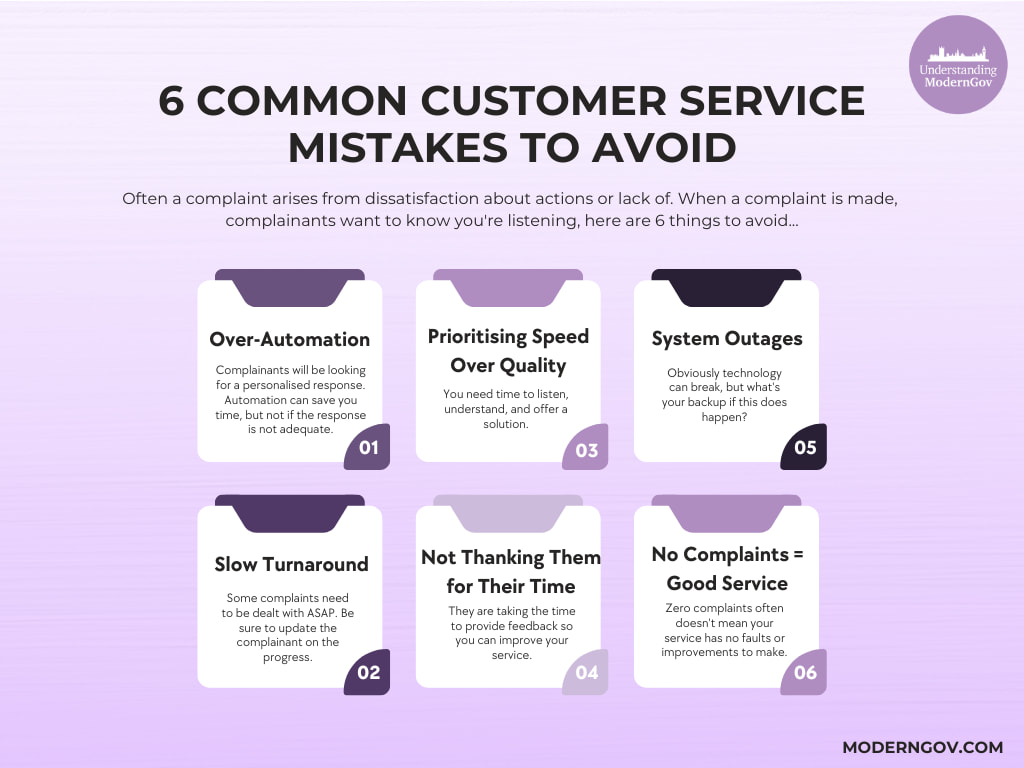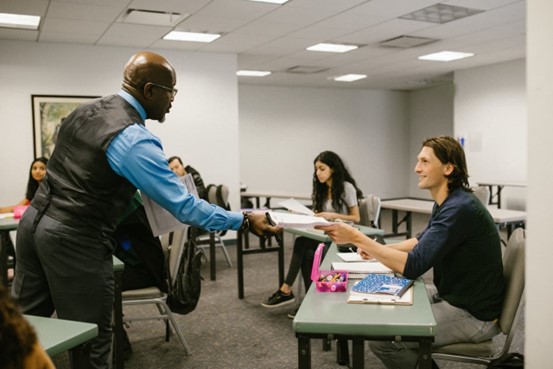Responding to Written Complaints in Education: Addressing Concerns From Students & Parents
 Lavinia De Luca
·
3 minute read
Lavinia De Luca
·
3 minute read
There are different types of written complaints to consider when working in a school or higher education.
Both schools and universities aim for high standards but sometimes things can go wrong, or expectations are not met. We will cover how to respond to complaints and the processes.
Firstly, What is a Complaint?
A statement that is wrong or not satisfactory that may be about an event that has happened or failed to happen in the way in which something was handled. These concerns can be resolved informally and should be resolved at the earliest possible stage. This can be done through discussion and open communication, but you need to understand the difference between a concern and a complaint. The Department of Education (DFE) defines them as:
-
Concern: An expression of worry or doubt over an issue for which reassurance is sought
-
Compliant: An expression or statement of dissatisfaction about actions taken or lack of action
How to Respond to Written Complaints in Schools
Schools, by law, should have their own complaints policy and procedure. This should be handled, if possible, without the need for formal procedures. If the situation is serious, however, schools and complainants can contact the DFE for more information about school complaints.
Ofsted will also consider complaints from parents that relate to the school their child (or children) is registered in. This includes the quality of education and well-being and safety.
DFE has issued guidance on how to deal with complaints, for all different types of schools and it is a useful guide if you are unsure of how to deal with a particular complaint. Read best practice guidance for school complaints.
Before you write the response, however, there are 6 common customer service mistakes to avoid.
6 Common Customer Service Mistakes to Avoid
1. Over-automation
2. Trying to handle customers too quickly: you need time to listen, understand, and offer a solution
3. System outages
4. Slow turnaround: you need to have a quick turnaround time for complaints
5. Undervaluing the power of a strong compliant response
6. No complaints = good customer service
We've created a complaint example and response to help you see where to place specific and most important parts of information in a response.
How to Respond to Written Complaints in Universities
University Student Services have an important role to play in a student’s academic experience and therefore, if a student is unhappy, you need to respond in a way that is empathetic, timely and transparent. All university and college students, regardless of their level of study, are entitled to enjoy a safe and positive educational experience.
Are You Prepared to Handle a Complaint of Any Kind?
There is always a policy to follow in the public sector and universities and colleges alike must emphasise their commitment to student needs and develop effective responses to complaints.
Your complaints policy should be reviewed every three years and if you do not have one, develop one as soon as possible. Complaints can be a good thing for you to make improvements that will benefit the rest of the student body.
While front-facing staff need to be updated with policies, it is important to clearly advise complaints and appeal procedures to students; in an actionable way such as through a handbook, forums, websites and learning environments. This needs to be available on any platform where students might benefit from knowing this information.
If you empower students, your reputation will grow. We understand everyone has unique circumstances and the policies are not always the best solution.
Three Most Important Parts of the Complaint Response Process
1. Listen: More often than you think, the student would like you to listen, and it is good for them to speak out comfortably. You should reassure that any discussions are confidential and do not ask unnecessary questions and respond without thinking.
2. Believe: It is part of your job to believe your students and you can prove what they are saying is going to be taken seriously
3. Signpost: Direct them to support or safe spaces to talk
Complicated or outdated processes are commonplace in the public sector, but they can mean a student goes unheard. The importance of having visible and accessible reporting for students as well as the staff who are trained cannot be undervalued.
It is better to have solid processes in place rather than having nothing in place and ending up with dissatisfied students.
What About Aggressive Complaints?
4 Quick Tips for Responding to Aggressive Complaints
-
Train your team in de-escalation techniques
-
Use positive language
-
Thank the customer for bringing the issue to your attention
-
Explain to the customer what you will do to help them
Handling persistent or aggressive complaints can be time-consuming and stressful for headteachers, student services and governors. However, most complaints raised will be valid and should be treated seriously and as early as possible.
You should only be aware of the complaint itself, whether it is persistent or unreasonable, not the person who made it. They can always make a valid complaint in the future which you should treat fairly.
If you need to gain the confidence and skills to handle aggressive verbal complaints, have a look at our highly interactive virtual course. You will learn how to handle these types of complaints and take back an action plan.
Master Customer Service in the Public Sector with our Training Courses
We are here to guide you, visit our new resources page and you will gain the confidence and skills to write effective written responses and handle aggressive verbal complaints.








